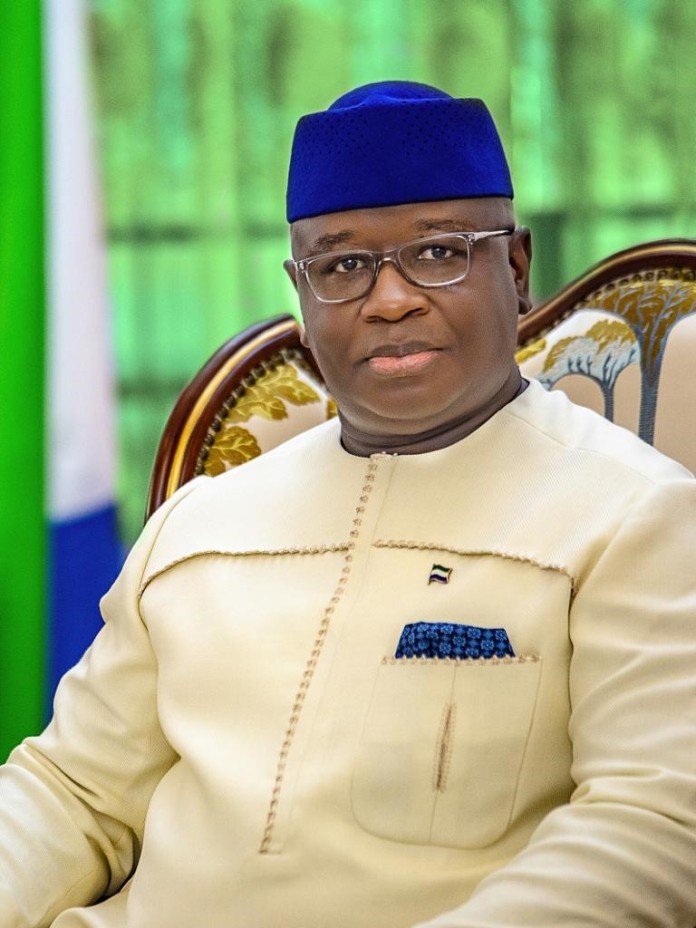By Amin Kef (Ranger)
The 2015 population census in Sierra Leone revealed that 93,129 individuals, constituting 1.3% of the total population of 7,076,119, are living with disabilities, according to the data from Statistic Sierra Leone (STATS SL). However, Persons with Disabilities (PWDs) have raised concerns about the accuracy of these statistics. Despite the Government’s early adoption of the United Nations Convention for the Rights of Persons with Disabilities (UNCRPD) and the enactment of the Person with a Disability Act in 2011, the current situation for PWDs in the country raises questions about the level of progress made over the past twelve years.
National Commission for Persons with Disability (NCPD) stands as a notable achievement since the enactment of the Act. The establishment of the NCPD was a pioneering step in promoting disability-related matters in the country. However, critics argue that the Commission lacks the necessary support from the government, leading to issues such as poor infrastructure, understaffing, inadequate working conditions, and the absence of essential resources like vehicles. This neglect hampers the progress of disability-related initiatives, leaving the Commission’s effectiveness in doubt.
The awareness about disability issues has significantly improved since the implementation of the Disability Act in 2011. Citizens and duty-bearers now possess a greater understanding of disability matters, leading to calls for radical inclusion in government policies. Notably, the government’s Mid-Term Development Plan included a dedicated disability component for the first time in the country’s history, reflecting the growing awareness. However, to further enhance awareness, the government must prioritize supporting the work of the National Commission for Persons with Disability.
A crucial factor hindering progress for PWDs is the lack of proper and accurate data. The Act stipulates cooperation between the government and Statistics Sierra Leone during national censuses to obtain accurate figures for persons with disabilities, but this requirement has not been fully met. Without precise data, effective planning for PWDs becomes challenging, leading to inadequate support and ad-hoc interventions. Conducting a dedicated census exclusively for PWDs, led by the NCPD and STATS-SL, could offer a solution to this problem.
The provision of free education for PWDs in tertiary institutions, along with the structural adaptation of educational institutions for accessibility, has been one of the Act’s most popular sections. However, in recent years, the Ministry of Higher Education has made it difficult for PWDs to access free education by imposing extra charges and excluding disabled students from certain educational programs. This contravenes the Act’s provisions and has prompted calls for government intervention to uphold the rights of PWDs in education.
The Ministry of Social Welfare, responsible for disability issues, has been at odds with the National Commission for Persons with Disability, hindering effective collaboration and stifling the Commission’s growth. Rumors suggest that successive ministers have viewed the Commission as a competitor and worked to prevent funding and support from reaching it. For the benefit of PWDs, a clear and collaborative line of operation between the Ministry of Social Welfare and the Commission must be established.
Despite legal frameworks allowing for the inclusion of PWDs in political platforms, the political representation of disabled individuals remains lacking. Political parties have not effectively implemented measures to ensure PWDs’ participation, leaving disabled individuals underrepresented in governance. This disparity calls for urgent action from the government to appoint disabled individuals to political positions and promote their active involvement in decision-making processes.
In conclusion, Sierra Leone has the potential to harness the talents and abilities of the disability sector for national development. President Bio’s government has shown commitment to changing the lives of PWDs, but further attention and proper utilization of relevant structures are required. The National Commission for Persons with Disability must be empowered with the necessary resources to drive the President’s vision and bring about positive change for PWDs. The government’s investment in disability-related matters should yield visible outcomes, and it is imperative for the presidency to prioritize this cause.




